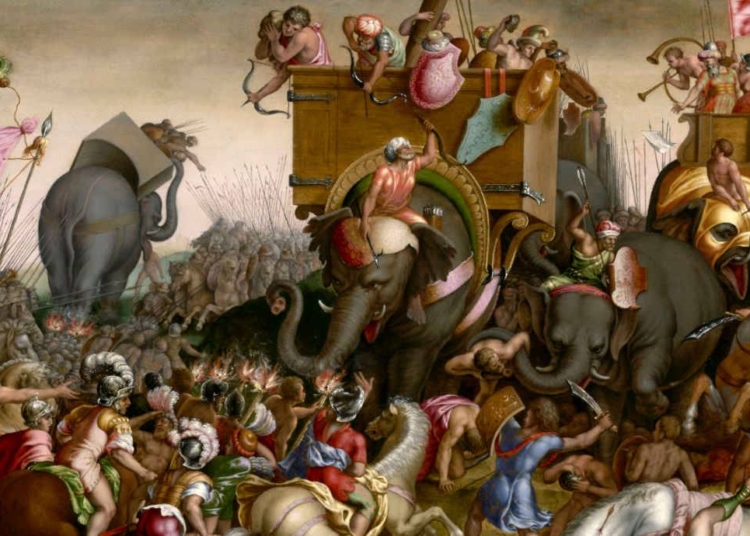The Mediterranean region has been a hotbed of cultural diversity and power struggles throughout history. The collision of Mediterranean powers during the Roman Empire era was a significant period that shaped the course of history. The Romans, with their military strength and expansionist goals, clashed with other powers in epic battles that determined dominance in the region.
The rise of Rome saw the establishment of a vast empire stretching across Europe, Africa, and Asia. The Punic Wars against Carthage, the Macedonian Wars, and the Roman-Persian Wars were crucial conflicts that cemented Roman supremacy in the Mediterranean. These clashes left a lasting legacy on the region, influencing art, architecture, literature, and cultural traditions that continue to endure today. The Roman Empire’s dominance in the Mediterranean region shaped the future of civilization and left an indelible mark on the world.
The Mediterranean region has long been a melting pot of different cultures, civilizations, and empires vying for power and dominance. One of the pivotal moments in this tumultuous history was the collision of Mediterranean powers during the height of the Roman Empire. The Romans, known for their military prowess and expansionist ambitions, clashed with various other powers in the region in a series of epic battles that shaped the course of history.
The Rise of Rome
The Roman Empire was a powerhouse in the ancient world, stretching from the British Isles to Egypt and from Spain to modern-day Turkey. The Romans were known for their highly skilled and disciplined army, which allowed them to conquer vast territories and establish a hegemony over the Mediterranean region. However, their dominance was constantly challenged by other powers in the region.
The Punic Wars
One of the most significant clashes between the Romans and another Mediterranean power was the series of conflicts known as the Punic Wars. These wars were fought between Rome and Carthage, a powerful city-state located in North Africa. The First Punic War, which lasted from 264 to 241 BC, saw Rome emerge victorious and gain control of Sicily. The Second Punic War, which lasted from 218 to 201 BC, was led by the famous Carthaginian general Hannibal, who famously crossed the Alps with his army and inflicted several devastating defeats on the Roman legions. However, Rome eventually emerged victorious once again, forcing Carthage to accept harsh terms of surrender. The Third Punic War, which lasted from 149 to 146 BC, saw Rome finally destroy Carthage as a power and establish itself as the undisputed master of the western Mediterranean.
The Macedonian Wars
Another significant conflict for Roman supremacy in the Mediterranean was the series of wars against the kingdom of Macedonia. The Macedonian Wars were fought between Rome and the powerful Macedonian king Philip V, who sought to expand his influence in Greece and the eastern Mediterranean. The First Macedonian War, which lasted from 215 to 205 BC, saw Rome emerge victorious and establish its dominance in Greece. The Second Macedonian War, which lasted from 200 to 196 BC, ended with the defeat of Philip V and the imposition of harsh terms on Macedonia. The Third Macedonian War, which lasted from 171 to 168 BC, saw Rome once again emerge victorious and establish itself as the dominant power in the eastern Mediterranean.
The Roman-Persian Wars
One of the longest and most enduring clashes between Mediterranean powers was the series of wars fought between Rome and the Persian Empire. The Roman-Persian Wars were fought over several centuries, from the 1st century BC to the 7th century AD, and saw both empires vie for control over the lands between the Mediterranean and the Euphrates River. These wars were marked by intense fighting, with both sides suffering heavy losses and territorial gains shifting back and forth. The wars finally ended with the rise of Islam in the 7th century, which brought an end to both the Roman and Persian empires.
The Legacy of Mediterranean Powers Collide
The clashes between Mediterranean powers during the Roman Empire were pivotal in shaping the course of history. They helped to establish Rome as the dominant power in the region and laid the foundations for the spread of Roman culture and civilization throughout the Mediterranean world. The legacy of these conflicts can still be seen today in the architecture, art, and literature of the region, as well as in the cultural and religious traditions that have endured for centuries.
In conclusion, the collisions between Mediterranean powers during the Roman Empire were pivotal battles that shaped the course of history. The Romans’ military prowess and expansionist ambitions allowed them to emerge victorious in conflicts with Carthage, Macedonia, and Persia, establishing themselves as the dominant power in the region. The legacy of these clashes can still be seen today in the cultural and artistic achievements of the Mediterranean world, as well as in the enduring impact of Roman civilization on the modern world.












